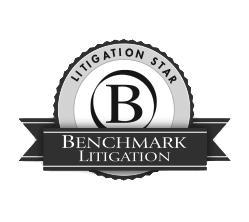Cause of Strokes: Medical Malpractice?
Call 410-825-5287 for a free medical malpractice consultation
Causes of Strokes:
Strokes disrupt the flow of blood to your brain which damages brain tissue.
Ischemic Stroke:
The most common stroke, ischemic stroke, results from a blockage in an artery. Almost 90% of strokes are ischemic. They occur when arteries to the brain are narrowed or blocked, resulting in severely reduced blood flow. The lack of blood flow reduces the flow of blood and nutrients to the brain, killing brain cells within minutes. The most common ischemic strokes are:
Thrombotic Stroke:
This stroke is caused when a blood clot forms and blocks an artery that supplies blood to the brain. A common cause of this is atherosclerosis, a disease in which arteries are clogged by fatty deposits (plaques). This can occur within one of the carotid arteries. These arteries carry blood to the brain and other arteries of the brain and neck.
Embolic Stroke:
This stroke is caused when a blood clot or other debris is formed in a blood vessel away from your brain, commonly in your heart, and is carried through your bloodstream into narrower brain arteries. This clot is an embolus. Atrial fibrillation, commonly known as an irregular heartbeat, an lead to this clotting by pooling blood in the heart that aids in the formation of blood clots that travel to other areas of the body.
Hemorrhagic Stroke:
The less common stroke is the hemorrhagic stroke. Hemorrhage is the medical term for bleeding. Hemorrhagic stroke can result from a number of conditions that affect your blood vessels including uncontrolled high blood pressure (hypertension), weak spots in your blood vessel walls (aneurysms), and the less common rupture of an arteriovenous malformation (AVM) — an abnormal tangle of thin-walled blood vessels, present at birth. The two types of hemorrhagic stroke are:
Intracerebral Hemorrhage:
In this type of stroke, a blood vessel in the brain bursts and spills into the surrounding brain tissue, damaging cells.
Subarachnoid Hemorrhage:
In this type of stroke, bleeding starts in an artery on or near the surface of the brain and spills into the space between the surface of your brain and your skull.
Transient Ischemic Attack(TIA):
A final subject of note is the transient ischemic attack (TIA), aka a ministroke. This is a brief episode of symptoms similar to stroke, usually last less than 5 minutes. A TIA should not be ignored, as it could be indicative of a blockage or condition that could lead to a full blown stroke.
How do I know if there was Medical Malpractice?
Malpractice occurs when there is a failure to diagnose the stroke or there are treatments available for a stroke that is not administered in time.
Tell Us About Your Case and We'll Assess It For You.
100% Free.
Accolades for Weltchek Mallahan & Weltchek
OVER $600 MILLION IN VERDICTS & SETTLEMENTS FOR OUR CLIENTS




